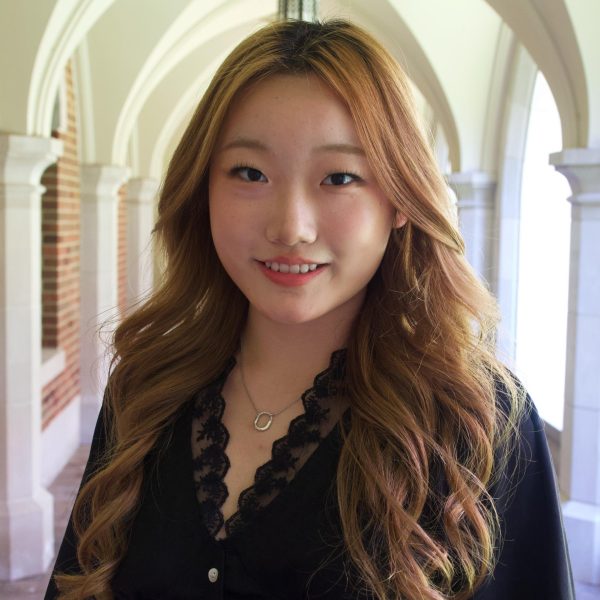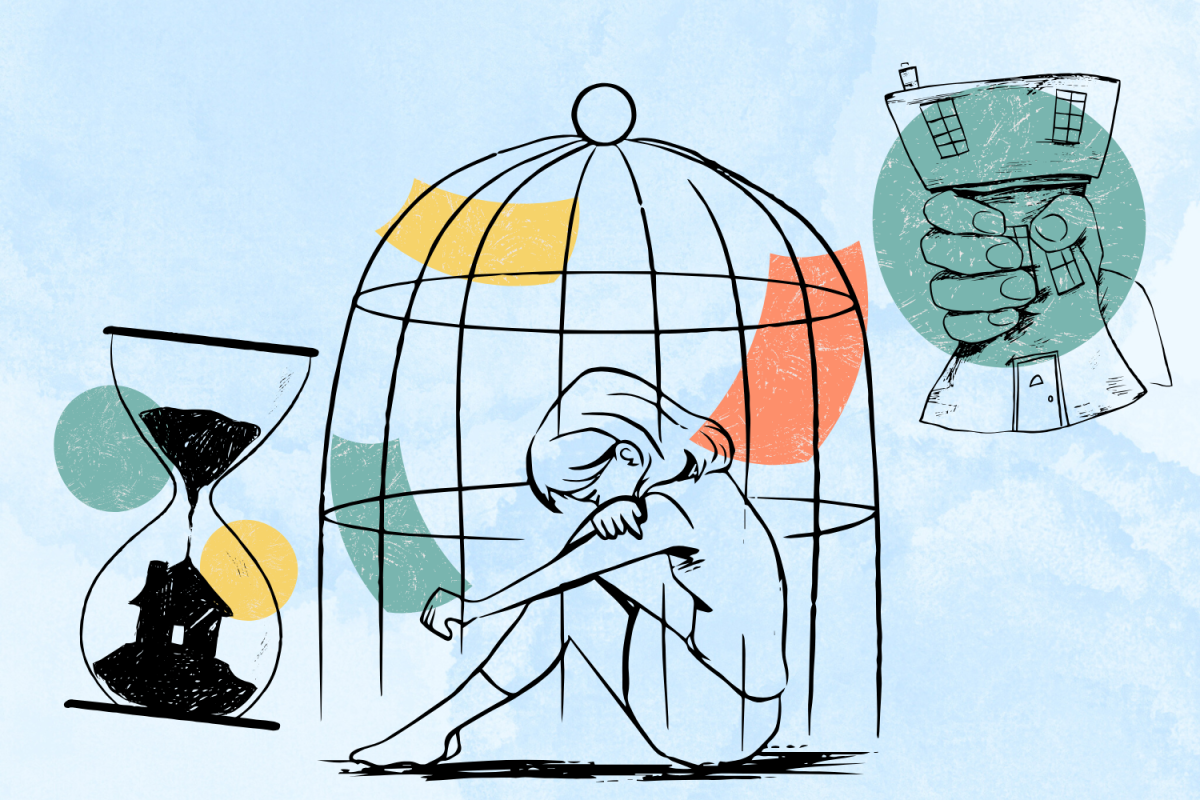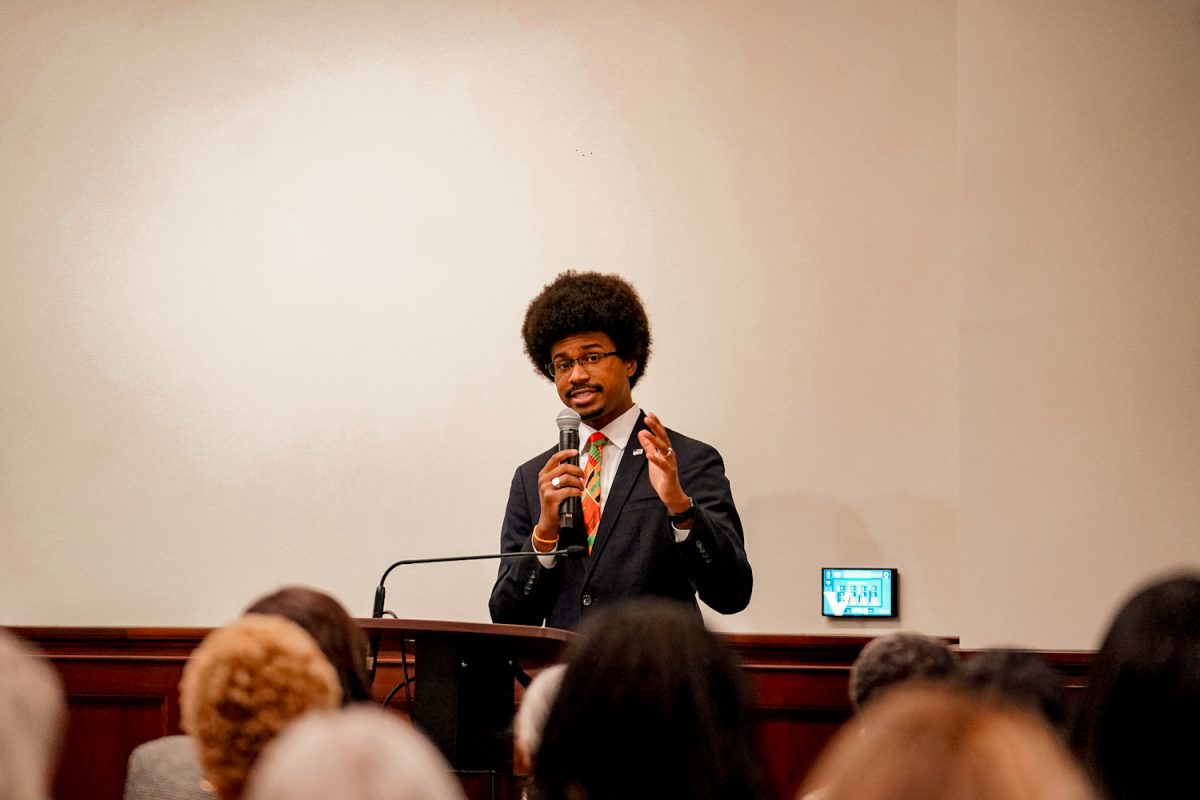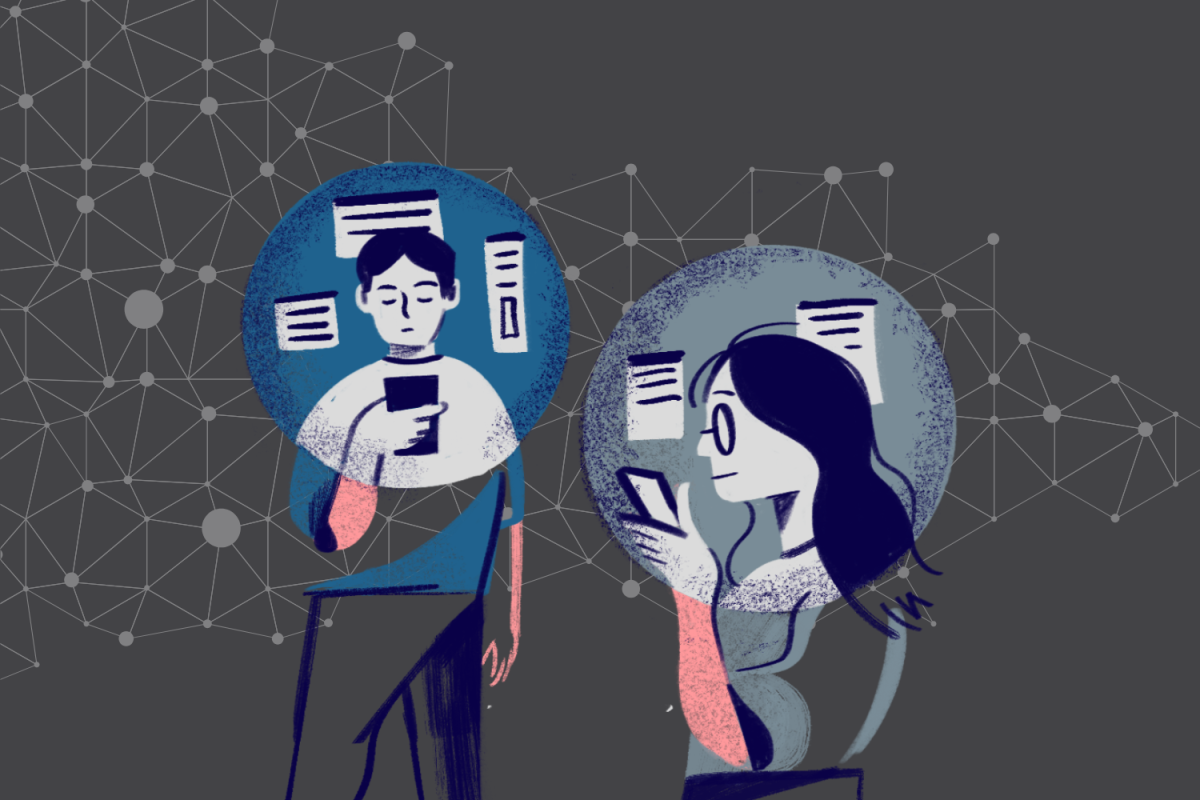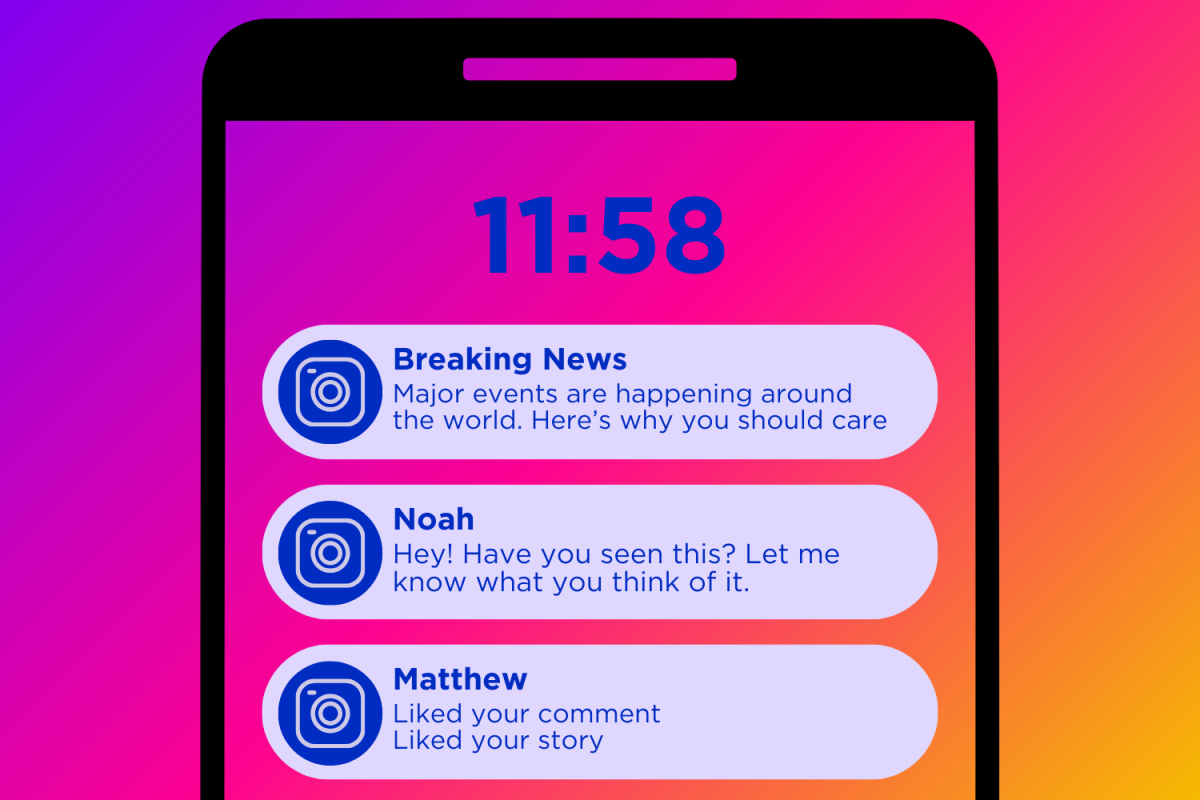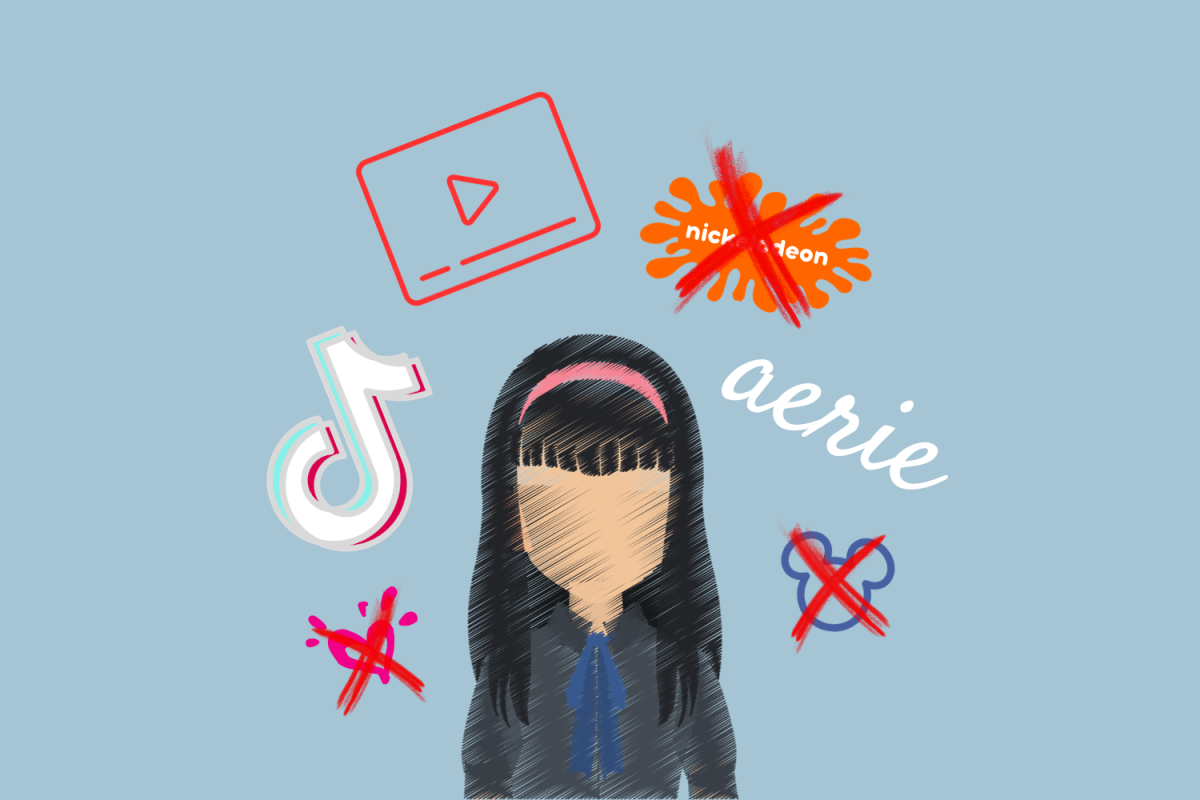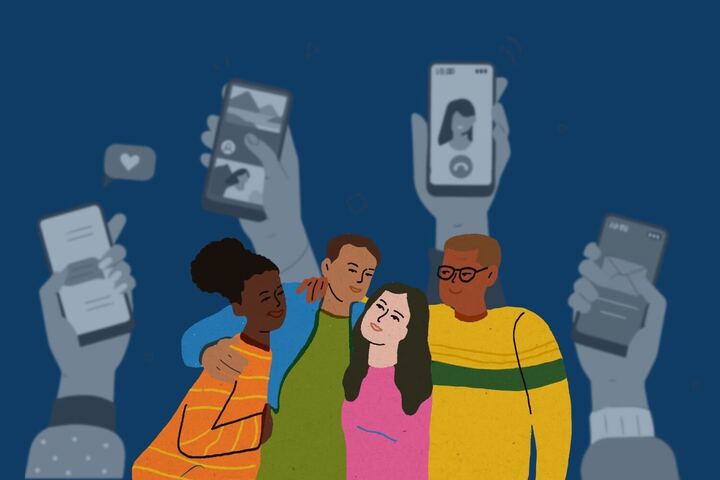I never thought an app filled with dance trends, chaotic skits and oddly specific niche humor would become such a constant in my life. My typical TikTok routine wasn’t groundbreaking — it consisted of scrolling mindlessly through my feed, giggling at relatable content, liking a few random posts and occasionally sending videos to friends without saying a word. For the friends I felt closest to, this unspoken exchange became a language of its own. A single clip could convey everything from “this reminded me of you” to “I needed you to laugh at this with me.”
But TikTok wasn’t just a way to connect with friends — it was where I shared pieces of myself. I had a piano channel where I posted covers, a personal little corner of the internet where my creativity lived without expectations.
With the TikTok ban arriving like an earthquake, young people like me were jolted into a state of disbelief and confusion. For a generation that grew up documenting their lives in 15-second snippets, TikTok has been more than just an app. It’s a cultural hub, a creative outlet and, for some, even a livelihood. The government’s decision to ban the app under the guise of national security left my friends and I questioning everything from data privacy to political motives.
Headquartered in Beijing, ByteDance is the company that owns TikTok, and critics argue that China’s 2017 National Intelligence Law could compel companies to share data with the government upon request. With TikTok boasting over 150 million active users in the U.S. alone, officials claim the app poses a significant risk. Proponents of the ban argue that TikTok’s massive trove of data — including location information, user activity and device details — could be weaponized for surveillance or propaganda purposes.
On paper, these concerns seem valid. However, many of my peers have called out what feels like selective enforcement. “If TikTok is banned because of data collection, what about Instagram or Facebook?” a friend asked in our group chat. It’s a question I couldn’t ignore. After all, U.S.-based apps are notorious for their data collection practices, too, yet they seem to operate without the same level of scrutiny.
Critics of the ban see it as a politically motivated decision, influenced by rising tensions between the U.S. and China rather than concrete evidence of wrongdoing by TikTok. Some suggest the ban is less about security and more about signaling a tough stance against China in a politically charged environment.
As an 18-year-old artist in the Vanderbilt community, the TikTok ban hit hard. For me and many other students with creative minds, TikTok is more than just a way to pass time — it’s a platform where we share our art, find inspiration and even build businesses. Losing that space was frustrating, especially for creators who depend on it for exposure or income. While platforms like Instagram Reels and YouTube Shorts are alternatives, they just don’t offer the same unique culture or algorithms that made TikTok such a powerful tool for spreading inspiration.
Others, however, support the government’s decision, viewing it as a necessary step to safeguard U.S. data and reduce reliance on foreign-owned technology. This perspective fails to address the emotional and cultural blow dealt to our generation — while I don’t want to sound melodramatic, it’s hard to not feel like this is a crossroads moment. The ban has forced us to confront questions we’ve avoided for too long. What rights do we have over our data? How much control should the government have over the platforms we use? At what point does protecting national security become an excuse for restricting free expression?
If there’s any silver lining, it’s that the TikTok ban has sparked these conversations in the first place. Whether the ban is extended or not, it’s clear this fight isn’t just about one app. It’s about how we balance privacy, security and creativity in the digital age. As I watch the debates unfold in real-time, I can’t help but wonder what kind of world we’re scrolling toward and whether we’ll have a say in what it looks like.
From my perspective, the implications of this situation on free speech are concerning. While national security is undeniably important, I fear that allowing the government to intervene so heavily in our digital spaces sets a dangerous precedent. Creativity thrives in environments where ideas can flow freely without fear of interference. Targeting a specific platform opens the door to silencing spaces that have amplified voices on issues ranging from racial justice to climate change. I believe some level of restriction may be necessary to protect privacy and security, but that should never come at the cost of our ability to express ourselves freely online. We need carefully crafted policies that prioritize transparency rather than unilateral control.
The rise of the “TikTok Refugee” movement underscores the unpredictable ripple effects of policy decisions in the digital age. The U.S. government may have targeted TikTok specifically, but the migration to platforms like Xiaohongshu shows how users can disrupt the narrative by refusing to let their creativity be silenced. Instead of fading away, they’ve transformed the situation into a moment of collective resilience and reinvention.
This paradox underscores a deeper issue: the complexity of digital sovereignty in a globally interconnected online ecosystem. U.S. efforts to curb the influence of Chinese apps may inadvertently fuel the rise of other foreign competitors as users prioritize community over geopolitical concerns. I’ve seen firsthand how these platforms allow individuals from all over the world to come together, share stories and challenge norms. Forcing us into silos based on politics is not only an inconvenience but a direct attack on freedom of expression. Ultimately, the audience’s willingness to pivot to another Chinese app raises a compelling question: Is data privacy the real concern, or is it about control over who owns the platform for global cultural influence?
As college students, we’re not just bystanders in this fight: We’re on the frontlines. This battle is personal. We create content, we consume it and we shape the digital world every single day. If we want to push back against this overreach, it starts with being informed. For me, that means understanding the implications of these policies, speaking out and even organizing events on campus about tech sovereignty and creative freedom. It also means holding our lawmakers accountable and ensuring that their decisions are based on the needs of the people and not just the whims of political agendas.
At the same time, the government is treating users like pawns in a geopolitical chess game, forgetting that we should be the ones driving the game — even changing its rules. There needs to be a conversation, not a ban. The government must move toward meaningful dialogue with tech companies about privacy regulation, without resorting to heavy-handed bans that ultimately punish users more than the platforms themselves.
As the dust settles, one thing remains clear: we’re not just waiting for someone to decide our fate. We’re actively building new communities and connections while exploring new platforms. So, as we ride the wave of uncertainty, maybe it’s time to trade in TikTok dances for a good old game of digital hide-and-seek. But don’t worry, I’m sure we’ll still find each other — just with a few more steps (and maybe a new app or two). Because if there’s one thing TikTok taught us, it’s that creativity can never be truly silenced.




